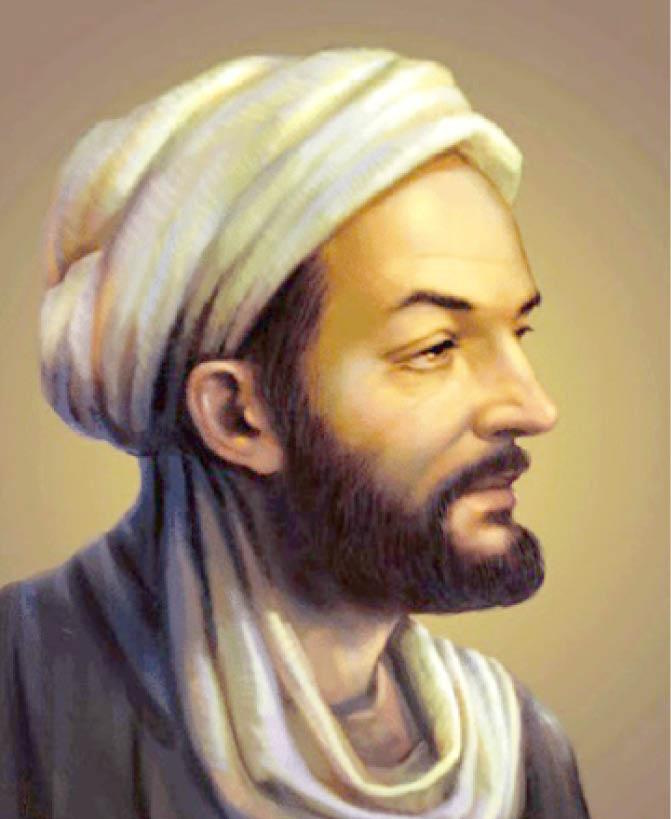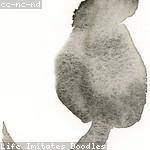"The Polymath of the Islamic Golden Age - Ibn Sina (Avicenna)
In the city of Bukhara, where the domes of mosques rose like golden orbs against the azure sky and the fragrance of spices filled the air, there lived a polymath whose intellect soared to the heavens and delved into the depths of human knowledge. His name was Ibn Sina, known in the West as Avicenna, and his legacy would forever shape the course of medicine, philosophy, and science.
Born into a world where the golden age of Islamic civilization intersected with the vibrant tapestry of Persian culture, Ibn Sina's early years were marked by a thirst for knowledge that knew no bounds. Raised in the intellectual ferment of 10th-century Bukhara, he was exposed to a rich tapestry of ideas from a young age, drawn from the wisdom of ancient Greek philosophy, Islamic theology, and the scientific traditions of the ancient world.
From the dusty libraries of Bukhara's madrasas to the bustling markets of Baghdad and Isfahan, Ibn Sina journeyed far and wide in search of intellectual enlightenment, guided by the belief that the pursuit of knowledge was the highest calling of the human soul. Along the way, he studied under some of the greatest scholars and philosophers of his time, immersing himself in the intricacies of medicine, metaphysics, and mathematics.
It was here, amidst the gleaming minarets and verdant gardens of the Islamic world, that Ibn Sina's intellect blossomed like a desert flower, unfolding layer by layer to reveal the dazzling beauty of his scholarly insights. Drawing upon the wisdom of ancient Greek thinkers like Aristotle and Galen, he sought to synthesize the disparate strands of knowledge into a coherent and systematic framework.
Yet, Ibn Sina's quest for intellectual enlightenment was not without its challenges. Living in a world torn apart by political intrigue and religious strife, he faced fierce opposition from orthodox theologians who viewed his philosophical inquiries with suspicion and mistrust.
Undeterred by their condemnation, Ibn Sina continued to pursue his studies, guided by the belief that reason and revelation were complementary paths to truth. In his magnum opus, ""The Canon of Medicine,"" he synthesized the medical knowledge of the ancient world into a comprehensive encyclopedia of medical science, laying the foundation for the development of modern medicine.
As the years went by, Ibn Sina's fame spread far and wide, drawing scholars and students from all corners of the Islamic world to study under his tutelage. His works on medicine, philosophy, and science became indispensable tools for those who sought to unravel the mysteries of the natural world and the cosmos.
Yet, for all his brilliance, Ibn Sina remained humble, ever mindful of the limits of human understanding. His legacy, however, would endure long after his passing, a beacon of light amidst the darkness of ignorance, a testament to the enduring power of human reason and intellectual inquiry.
Influence and Legacy:
Ibn Sina's works would go on to influence generations of scholars and scientists, shaping the course of medicine, philosophy, and science for centuries to come. His Canon of Medicine remained a standard medical textbook in Europe for over six centuries, while his philosophical works laid the groundwork for the development of Islamic philosophy and the revival of Aristotelian thought in the West.
Yet, despite his monumental contributions, Ibn Sina's name would often be overshadowed by those of later luminaries. It was not until the Renaissance that Western scholars would come to recognize the debt owed to this polymath of the Islamic Golden Age, whose insights into medicine, philosophy, and science had laid the foundation for the modern world.
Today, as we ponder the mysteries of the cosmos and the complexities of the human body, let us remember Ibn Sina, whose legacy endures as a testament to the enduring power of human reason and intellectual inquiry.
Notable Works:
1. ""The Canon of Medicine"" - A comprehensive encyclopedia of medical science, synthesizing the medical knowledge of the ancient world and laying the foundation for the development of modern medicine.
2. ""The Book of Healing"" - A philosophical encyclopedia covering a wide range of topics, including metaphysics, logic, ethics, and psychology, offering insights into the nature of reality and the human soul.
3. ""The Book of Salvation"" - A theological treatise exploring the nature of God, revelation, and prophecy, offering insights into the relationship between reason and revelation in Islamic theology.
Related Scholars:
Ibn Sina's legacy resonated with later philosophers, scientists, and physicians, including Ibn Rushd, Al-Ghazali, and Maimonides, who built upon his ideas and expanded the horizons of human knowledge.
"






Delete Comment
Are you sure that you want to delete this comment ?
Zainab El-Farsi
Delete Comment
Are you sure that you want to delete this comment ?
Delete Comment
Are you sure that you want to delete this comment ?
MuslimMindfulness
Delete Comment
Are you sure that you want to delete this comment ?
Nour Mahmoud
Delete Comment
Are you sure that you want to delete this comment ?
Hadija Khalifa
Delete Comment
Are you sure that you want to delete this comment ?
Ayesha Ahmed
Delete Comment
Are you sure that you want to delete this comment ?
BlessedPaths
Delete Comment
Are you sure that you want to delete this comment ?
Amir Al-Said
Delete Comment
Are you sure that you want to delete this comment ?
Ayesha Bah
Delete Comment
Are you sure that you want to delete this comment ?
Yusuf Al-Hadi
Delete Comment
Are you sure that you want to delete this comment ?
IslamInnovator
Delete Comment
Are you sure that you want to delete this comment ?
Tariq Hamid
Delete Comment
Are you sure that you want to delete this comment ?
Temitope Ogundele
Delete Comment
Are you sure that you want to delete this comment ?